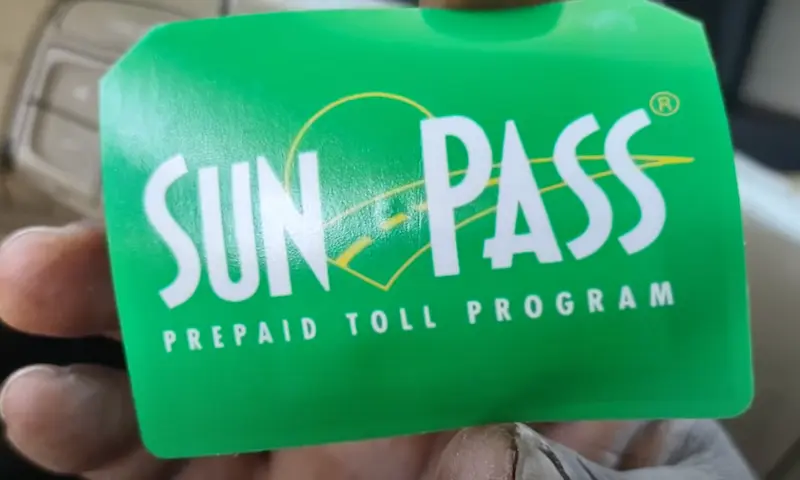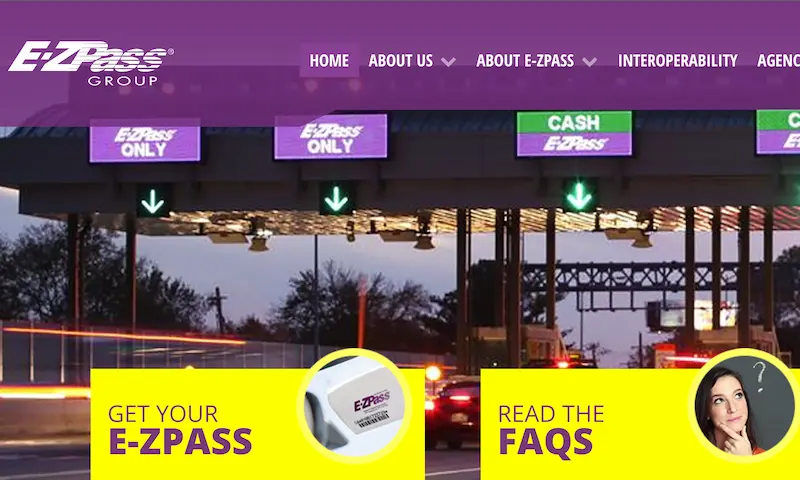Driving cross-country with your I-Pass transponder seems like it should be simple. Just mount it on your windshield and cruise through toll plazas without stopping, right? But when your GPS directs you onto Texas toll roads, you might be wondering if your trusty I-Pass will work or if you’ll be facing unexpected bills in the mail later.
What Is I-Pass and Where Does It Work?
I-Pass is Illinois’ electronic toll collection system that allows drivers to pay tolls without stopping. It’s actually part of the larger E-ZPass network, which means your I-Pass works in 19 states across the Eastern and Midwestern United States.
These states include:
- Delaware
- Florida
- Illinois
- Indiana
- Kentucky
- Maine
- Maryland
- Massachusetts
- Minnesota
- New Hampshire
- New Jersey
- New York
- North Carolina
- Ohio
- Pennsylvania
- Rhode Island
- Virginia
- West Virginia
But there’s one big piece of news that travelers need to know: I-Pass does not work on Texas toll roads. If you’re planning a trip to the Lone Star State, you’ll need to make alternative arrangements for toll payments.
Why Doesn’t I-Pass Work in Texas?
Texas marches to the beat of its own drum when it comes to toll collection. While most of the eastern half of the country has standardized on the E-ZPass system (which includes I-Pass), Texas developed its own independent toll systems before the push for national interoperability.
Texas uses different RFID technology standards than the E-ZPass network. While I-Pass uses TDM and SeGo RFID standards, Texas toll systems operate on the 6C RFID protocol. It’s like trying to use a Bluetooth device with a system that only accepts WiFi—the technologies simply don’t communicate with each other.
Additionally, Texas operates under a decentralized toll model with multiple regional authorities managing their own systems:
- The Texas Department of Transportation (TxDOT) manages TxTag
- The North Texas Tollway Authority (NTTA) issues TollTag
- Harris County Toll Road Authority (HCTRA) operates EZ TAG
Each system has its own jurisdiction, pricing, and technology, creating a complex web of toll management across the state.
What Happens If You Use Your I-Pass in Texas?
If you drive through a Texas toll plaza with only your I-Pass transponder, your I-Pass won’t register the toll. Instead, here’s what will happen:
- The toll plaza cameras will capture your license plate
- The Texas toll authority will look up your vehicle registration
- You’ll receive a bill in the mail for the toll amount plus administrative fees
This “Pay By Mail” option typically costs 20-50% more than using a Texas transponder. For a single toll, the difference might be minimal, but for extensive travel throughout Texas, these higher rates can add up quickly.
Options for Travelers Going to Texas
If you’re planning to drive in Texas, you have several options for handling toll payments:
1. Purchase a Texas Transponder
If you’ll be spending significant time in Texas, consider purchasing one of the state’s toll tags:
- TxTag: Works on all Texas toll roads and some neighboring states
- TollTag: Primarily for North Texas (Dallas-Fort Worth area)
- EZ TAG: Originally for Harris County (Houston area) but works statewide
| Transponder | Initial Cost | Where It Works | Benefits |
|---|---|---|---|
| TxTag | $20 deposit | All Texas toll roads, Oklahoma, Kansas | Lower toll rates, automatic payment |
| TollTag | No deposit | All Texas toll roads, best for Dallas-Fort Worth | Discounted rates on NTTA roads |
| EZ TAG | $15 deposit | All Texas toll roads, best for Houston area | Preferred for Houston-area tolls |
2. Pay By Mail (License Plate Billing)
If you’re only passing through Texas briefly:
- Drive through toll plazas without stopping
- Wait for a bill to arrive at your home address
- Pay online or by mail
- Be prepared for higher rates and possible administrative fees
3. Register Your Rental Car
If you’re renting a car in Texas:
- Some rental companies offer toll packages for a daily fee
- You can register your rental car’s license plate with certain Texas toll authorities
- Check with your rental company about their toll policies before driving
Texas Toll Roads You Should Know About
Texas has numerous toll roads, especially around major metropolitan areas. Here are some of the most commonly traveled:
- Dallas-Fort Worth Area: Dallas North Tollway, President George Bush Turnpike, Sam Rayburn Tollway
- Houston Area: Sam Houston Tollway, Hardy Toll Road, Fort Bend Tollway
- Austin Area: SH 130 (has the highest speed limit in America at 85 mph), SH 45, Loop 1 (MoPac Express)
- San Antonio: SH 130, Loop 1604
If your travel plans include these highways, you’ll definitely need a toll payment strategy.
The Future of Toll Interoperability
There is some hope on the horizon for easier cross-country toll travel. The National Interoperability (NIOP) Initiative is working to create nationwide toll transponder compatibility. The 2012 federal MAP-21 Act mandated nationwide toll interoperability, but implementation has been slow.
Florida recently began accepting E-ZPass (including I-Pass) on some of its toll roads, showing that progress is possible. Texas may eventually follow suit, but for now, I-Pass and Texas toll systems remain separate technologies.
Tips for I-Pass Users Traveling to Texas
- Plan ahead: Research the toll roads on your route before traveling
- Budget accordingly: Factor in higher Pay By Mail rates if you choose not to purchase a Texas transponder
- Keep records: Take photos of toll plaza signs as you pass through them for reference if billing issues arise
- Check rental agreements: If renting a car, understand the company’s toll policies
- Consider alternatives: In some cases, non-toll routes might be worth considering, especially for short trips
What to Do If You Accidentally Use Your I-Pass in Texas
If you’ve already driven on Texas toll roads with only your I-Pass:
- Don’t panic. You’ll receive a bill at your registered address
- Pay promptly to avoid additional fees or penalties
- Keep proof of payment in case of any discrepancies
- Remember that your I-Pass account was not charged (since the systems don’t communicate)
Bottom Line: Be Prepared for Different Toll Systems
While the convenience of a single nationwide toll transponder remains a future goal, the reality today is that regional differences persist. I-Pass works wonderfully throughout the E-ZPass network of 19 states, but Texas remains outside this system with its own toll infrastructure.
For travelers heading to Texas, knowing this limitation in advance allows you to make informed decisions about how to handle toll payments. Whether you choose to purchase a Texas transponder or pay the higher rates for license plate billing depends on the length and frequency of your Texas travel.
Remember: a little preparation before your trip can save you from unexpected toll bills and administrative fees down the road.
















